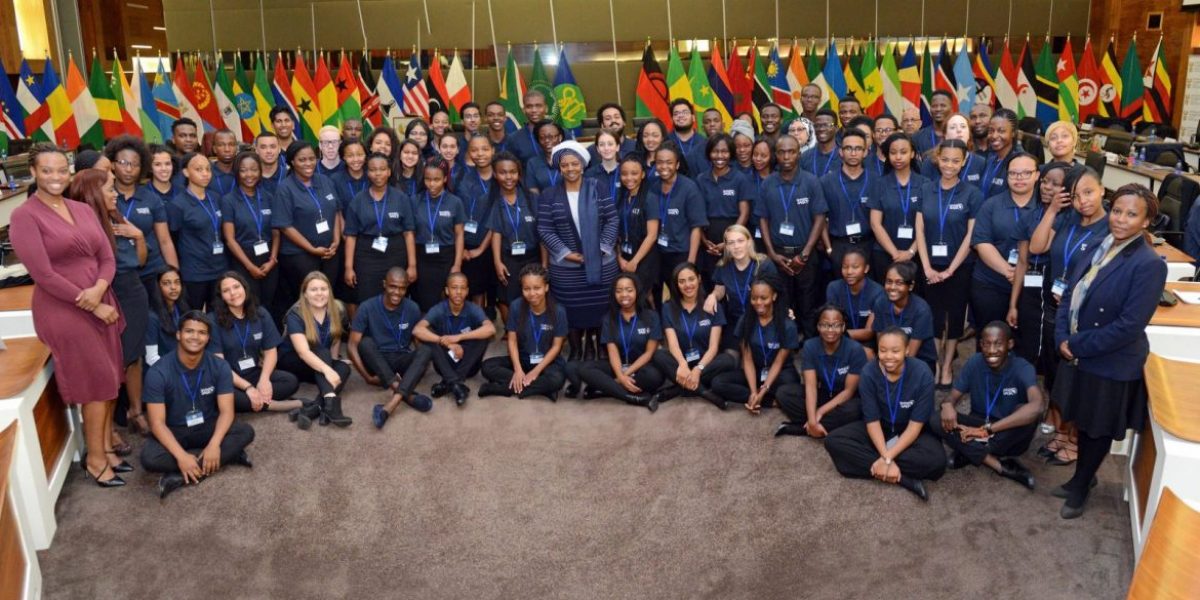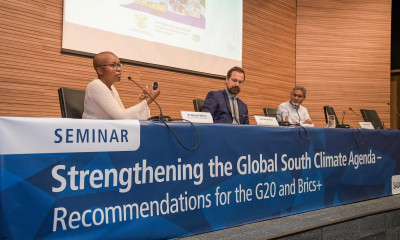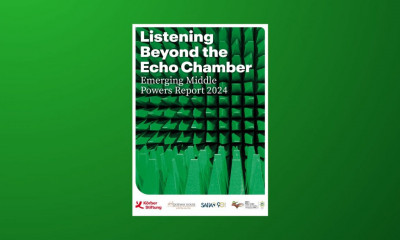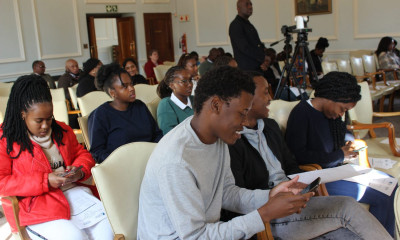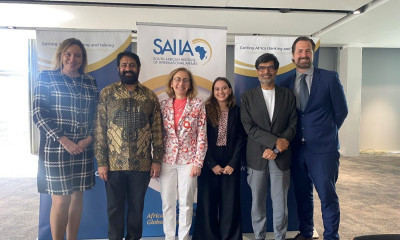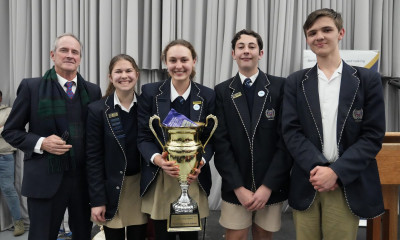This is not the view of a seasoned climate change negotiator but that of Elizabeth Ross, a grade 10 high school learner from Thomas More College in Durban.
Elizabeth and 17 of her peers spent the opening day at the 17th Conference of the Parties (COP 17) to the United Nations Framework Convention on Climate Change, in a simulated Youth Climate Negotiation. The group was required to represent a stakeholder from a particular sector and immerse her/himself into that role.
These roles included that of a commercial farmer, a representative of the fossil fuel industry, a member of the African Union, and a representative of the forestry industry, with 18 sectors represented in all. The idea was to put forward the positions of these sectors, as they would be in the “real world”, and find genuine solutions to the effects of climate change.
Stepping into someone else’s shoes was harder than most expected. Nabeel Allie-Ebrahim, a grade 11 pupil at Rondebosch Boys High School in Cape Town represented the fossil fuel industry and found his own personal views in conflict with those he had to present during the youth climate negotiations.
“I realised what a tough job our leaders, politicians and the [fossil fuel] industry has in finding common ground”, says Nabeel.
In his case, his negotiating stance went beyond the obvious question of how to produce clean energy. He had to consider other related issues such as the number of jobs a certain decision may affect or how a particular decision would affect Africa or the South African economy generally.
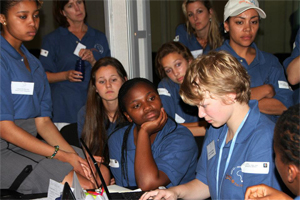
The negotiating process and the resulting protocol formed part of SAIIA’s youth programme called Youth@SAIIA’s Environmental Sustainability Project (ESP). Since the beginning of 2011, hundreds of students from around the country engaged in intensive research to build towards this process. While only 18 learners were eventually chosen to attend the COP 17 meetings, their presence was the culmination of the work they done throughout the year with their school teams in their various regions.
The theme for this year’s ESP was “Road to COP 17”. SAIIA’s Youth Development Officer, Desiree Kosciulek says having worked with various learners throughout the year and calls the process a “truly amazing journey”.
“Watching the Youth Climate Negotiation process and formal presentation was proof that our young people are capable of far more than we often give them credit for,” she says. “It is time to raise our expectations, and pull our young people from the sidelines and into the dialogue.”
Gabriel Adderley, a Grade 12 pupil from The Wykeham Collegiate in Durban, represented the agricultural sector. Being a vegan challenged her own ideas on what she thought the farming industry stood for and encouraged her to find workable solutions in an area she initially knew very little about.
“I have certainly become more knowledgeable and having had to represent a sector I didn’t wholly support, it was a challenge,” says Gabriel. “However, I enjoyed researching the ways in which this sector could change to become sustainable in the face of climate change and it was exciting to discover what I believe can be viable, realistic solutions.”
The group spent 12 hours negotiating their positions and having to find consensus on a number of issues they could not agree on. Just before midnight that evening, some semblance of what would become the South African Durban Youth and Children’s Protocol finally emerged.
“I can now say I fully appreciate the difficulty involved in finding common ground upon which to base solutions and ultimately for a protocol”, says Cassandra Moodley of Danville Park Girls High School in Durban.
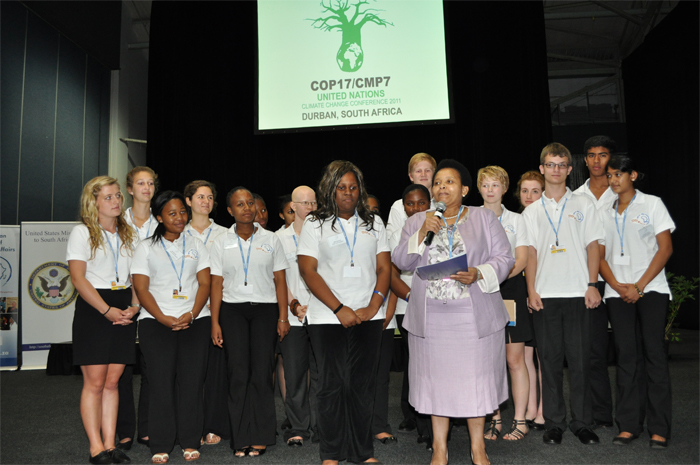
The learners formally handed over the protocol to the Minister of Women, Children and People with Disabilities, Minister Lulu Xingwana, during an official UNFCCC side event at the Durban Exhibition Centre. In accepting the protocol, Minister Xingwana commended the group on the seriousness of their work and encouraged them to build on these efforts by being the generation that finds solutions to the challenges of climate change.
Some highlights from the South African Durban Youth and Children’s Protocol as delivered at COP 17:
- Alarmed by the number of people displaced or harmed by climate change but not given proper aid or treatment because climate change isn’t recognised as justifying such response.
- Recommend that people displaced or harmed by climate change are given proper refugee status and are subsequently treated with those rights.
- Call for the investment in academic research and development within Africa to produce environmentally conscious alternatives that could provide solutions suitable to African climate change challenges.
- Advocate for “green” jobs, products and activities to gain popular support for environmental protection especially amongst the youth.
- Popularise the environmental agenda by using social media platforms and so change perceptions and generate interest of the seriousness of environmental protection.
Download the SAIIA South African Durban Youth and Children’s Protocol
Beyond their work on the youth climate negotiations and the protocol, the exposure to a major international event such as the UN climate change meeting, gave these youngsters, who needed special clearance just to enter the UNFCCC precinct, a whole new outlook on the opportunities they have to make their voices heard.
For Lillian Maboya, who has just completed grade 12 at the African Leadership Academy in Johannesburg, COP 17 gave her the opportunity to meet and network with African organisations who share her interest in climate change issues.
“The conference itself was awesome because I got to network with so many organisations that do climate change work in Africa, says Lillian.”COP 17 was an opportunity for me to learn about what it means to get a climate change deal and also, being part of a UN organised conference, it was an achievement for me to take part at such a young age and get to understand what the world goes on about.”
SAIIA would like to thank the United States State Department and Sasol for supporting the Environmental Sustainability Project.

